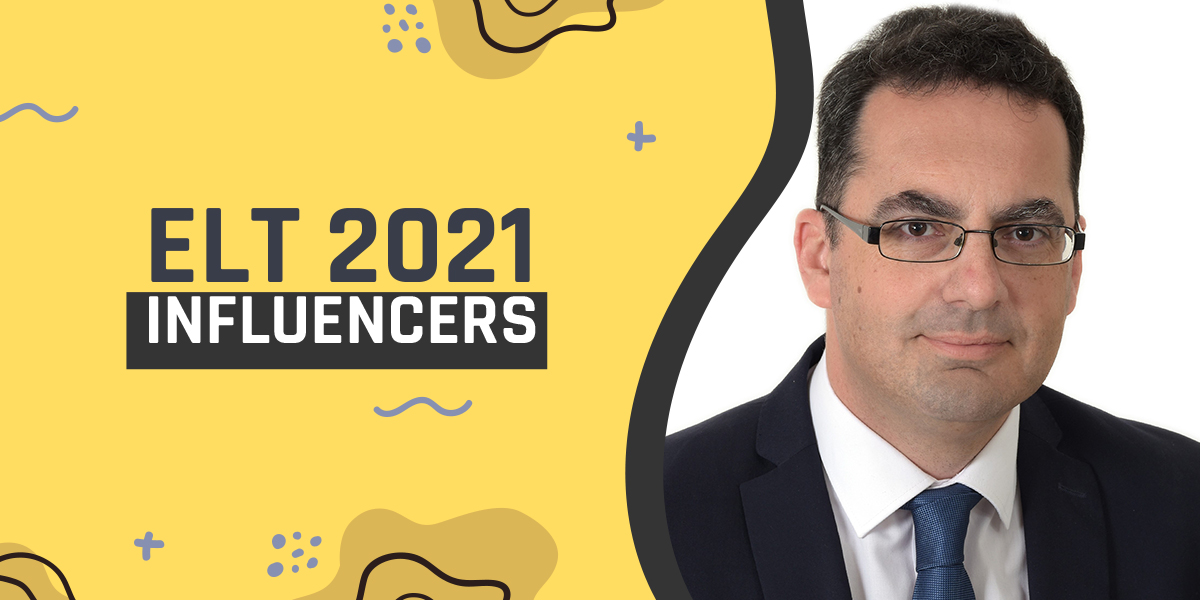Dimitris Primalis (M.A. in Education) is an EFL teacher and teacher trainer. He is a Microsoft Innovative Educator Fellow and was recently appointed as “Innovation and Best Practices Days” project manager at Doukas school.
What are the current trends in English language teaching?
Elearning, in various forms such as blended, hybrid and online, seems to be the dominant trend these days. Once treated as science fiction, the Flipped classroom approach (introducing the lesson through videos that learners watch at home and exploiting the time in class to work with the students on practicing and answering their questions) is gaining ground. Even though a few years ago, some teacher trainers vilified it, gamification through applications such as Kahoot, and Quizizz are very popular as they enable educators to engage learners in some of the most boring parts of a lesson. Teachers have also started to discover the opportunity to exploit the data/statistics these applications offer so that they can assess their learners’ strengths and weaknesses on individual and class basis.
What are the current trends in the development of technology in e-learning?
How would you feel if someone monitored closely your learners’ performance and notified you immediately if it declined? Artificial Intelligence and Learning Analytics are being developed to assist teachers rather than replace them. There is also an increasing demand for experiential learning which boosts Immersive learning with Virtual Reality (constructed reality), and Augmented Reality that enhances the views of real life objects.
What are the new trends in teaching?
Even though 21st century skills are not new, incorporating less popular skills such as digital literacies and digital citizenship are being incorporated swiftly in the curriculum. Two other trends are real life problem solving and personalized learning. The latter can be supported by technology as it offers learners the opportunity to access a wide range of resources that appeal to their personal learning goals, aptitude and skills. Last but not least, there is a tendency to support a more humanistic approach to teaching with emphasis on inclusion, life skills, raising awareness on social issues as well as facilitating learner engagement, and critical and creative thinking skills.
What are the current issues in language education?
Teachers and students suffer from fatigue mainly due to the unstable learning environment which switches from online to hybrid, and “brick and mortar” classrooms within short notice. This is exacerbated by the lack of sufficient, in-depth training of teachers and planning which is based on face-to-face teaching rather than blended and online. In addition, the digital gap between learners and teachers, and among educators even in the same school is evident. The past year is expected to have long term effects on our approach to teaching EFL. As soon as this academic year is over, we need to redefine norms and assess which elements of e-Learning should be kept or enhanced and which ones should be discarded so that we can cater best for the needs of our students in the next academic year. •
